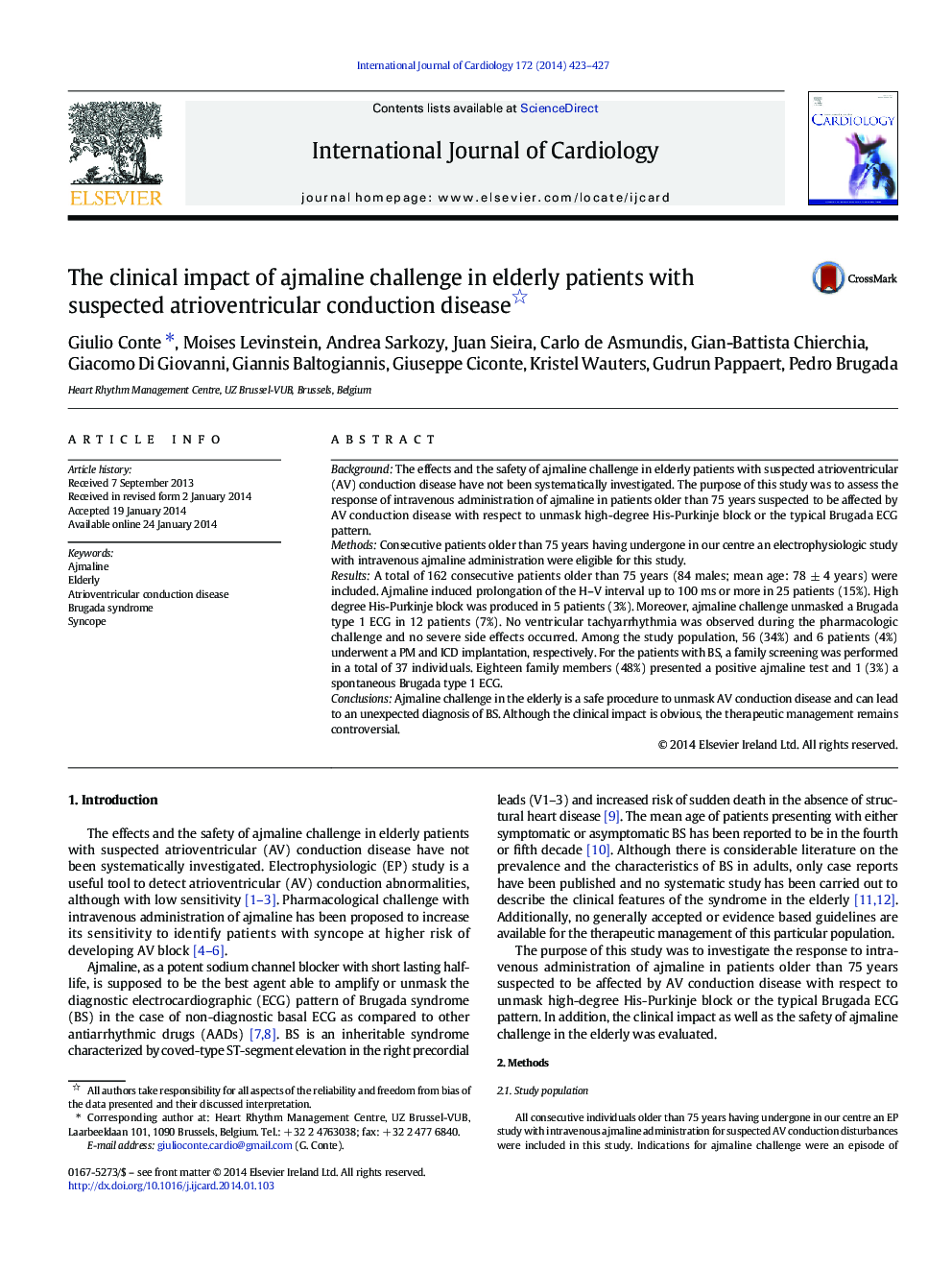| Article ID | Journal | Published Year | Pages | File Type |
|---|---|---|---|---|
| 5972034 | International Journal of Cardiology | 2014 | 5 Pages |
BackgroundThe effects and the safety of ajmaline challenge in elderly patients with suspected atrioventricular (AV) conduction disease have not been systematically investigated. The purpose of this study was to assess the response of intravenous administration of ajmaline in patients older than 75 years suspected to be affected by AV conduction disease with respect to unmask high-degree His-Purkinje block or the typical Brugada ECG pattern.MethodsConsecutive patients older than 75 years having undergone in our centre an electrophysiologic study with intravenous ajmaline administration were eligible for this study.ResultsA total of 162 consecutive patients older than 75 years (84 males; mean age: 78 ± 4 years) were included. Ajmaline induced prolongation of the H-V interval up to 100 ms or more in 25 patients (15%). High degree His-Purkinje block was produced in 5 patients (3%). Moreover, ajmaline challenge unmasked a Brugada type 1 ECG in 12 patients (7%). No ventricular tachyarrhythmia was observed during the pharmacologic challenge and no severe side effects occurred. Among the study population, 56 (34%) and 6 patients (4%) underwent a PM and ICD implantation, respectively. For the patients with BS, a family screening was performed in a total of 37 individuals. Eighteen family members (48%) presented a positive ajmaline test and 1 (3%) a spontaneous Brugada type 1 ECG.ConclusionsAjmaline challenge in the elderly is a safe procedure to unmask AV conduction disease and can lead to an unexpected diagnosis of BS. Although the clinical impact is obvious, the therapeutic management remains controversial.
